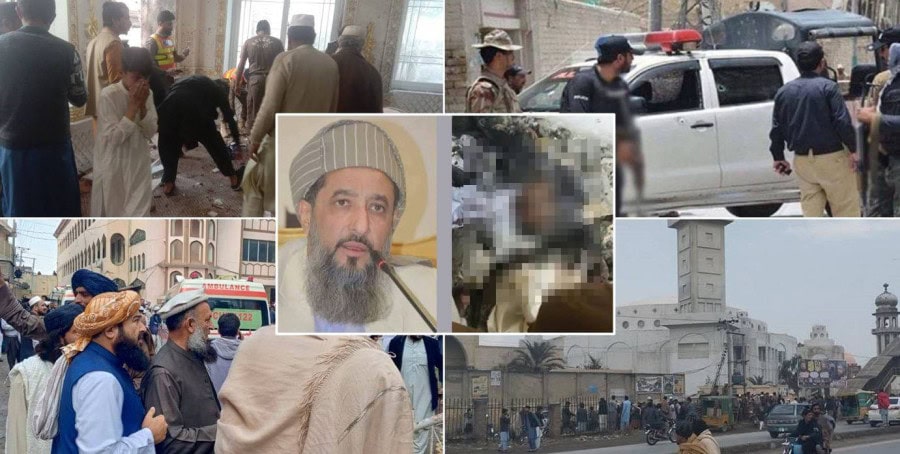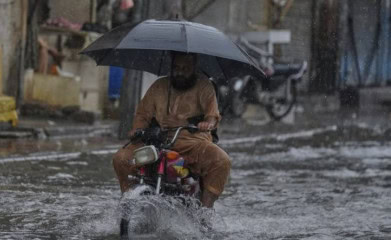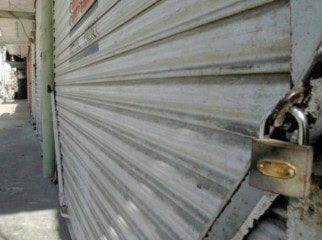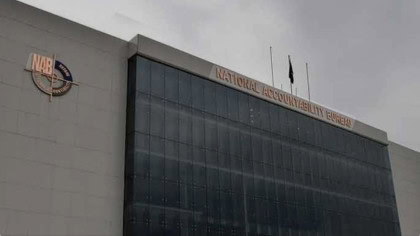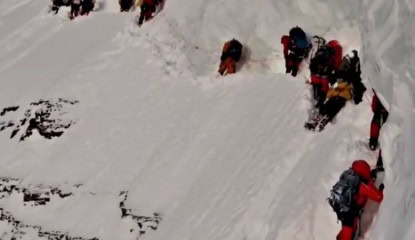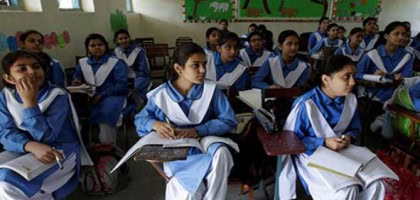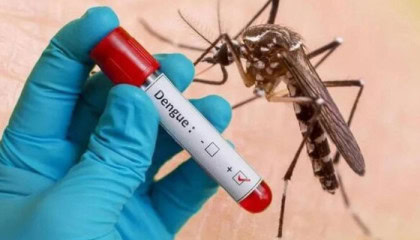PESHAWAR – A deadly bombing rocked a key mosque in northwestern Pakistan near Akora Khattak, Nowshera, after Friday gathering, in which five people including Maulana Hamidul Haq, the leader of Jamiat Ulema-e-Islam (JUI) Samiul Haq Group were killed, while several others suffered injuries.
The Madrassa attack sent shockwaves through the region, with multiple others injured in the terror attack. According to local officials, the bombing occurred just after the Friday prayers. Maulana Hamidul Haq, the chief of Jamia Dar al-Ulum Haqqania, was severely injured in the attack and later succumbed to his wounds. Haq, a prominent religious leader and politician.
He served as member of the National Assembly between 2002 and 2007 and took over the leadership of the JUI party in 2018 after the tragic assassination of his father, Samiul Haq.
Darul Uloom Haqqania Blast
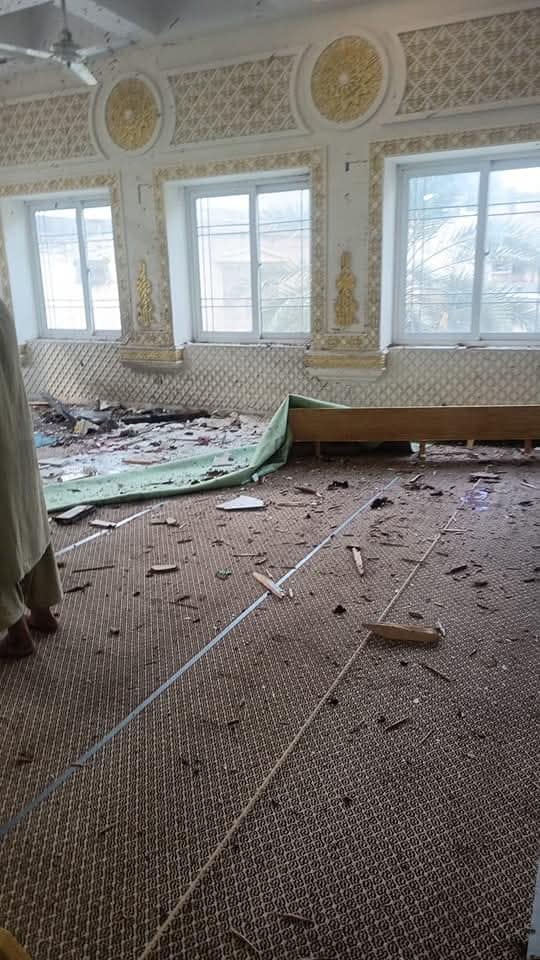
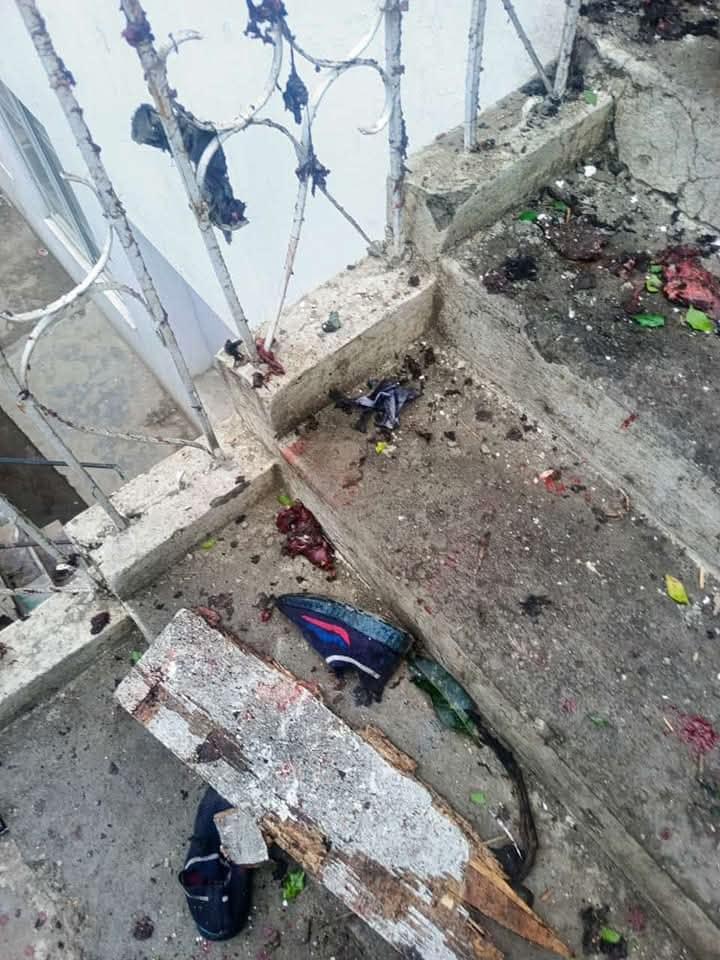
KP Police Chief, Zulfiqar Hameed, confirmed the attack as a suicide bombing and said that the target appeared to be Maulana Hamid. In a statement to the media, Hameed added that emergency services had been promptly dispatched to the scene, and multiple individuals were rushed to nearby hospitals with varying degrees of injuries.
Security on High Alert, Emergency declared at state hospitals
Rescue teams from Rescue 1122, including ambulances, medical teams, and fire brigades, arrived on the scene shortly after the blast. The injured were quickly transferred to hospitals in Peshawar, Mardan, and Nowshera.
The federal government strongly condemned the attack, with Interior Minister Mohsin Naqvi denouncing the bombing as part of a broader conspiracy to destabilize the country. In his statement, Naqvi expressed his condolences to the victims’ families and pledged that the government, with the support of the people, would thwart any attempts to create unrest in Pakistan.
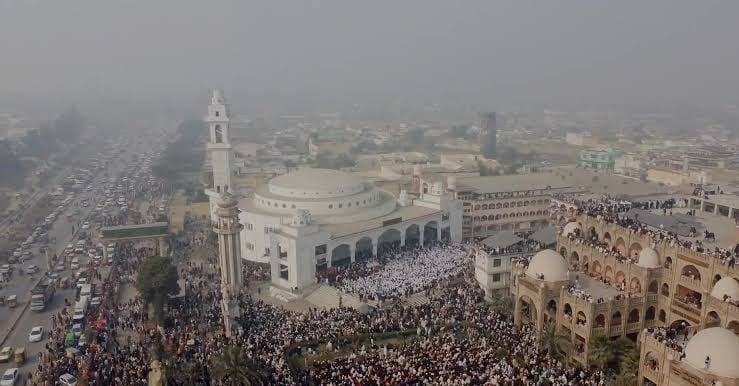
The blast site was secured by law enforcement agencies, and parts of the suicide bomber’s body were found at the location. The bomb disposal unit is currently working to gather further evidence and determine the exact nature of the explosive device used in the attack.
The incident has sparked widespread fear and anger among the public, particularly among the religious and political communities, and the local administration has declared a state of emergency in hospitals to accommodate the influx of injured individuals. Security across Khyber Pakhtunkhwa has been heightened, and investigations are underway to uncover the individuals or groups behind the deadly attack.
This bombing is the latest in a series of attacks aimed at religious leaders in the region, raising concerns over the growing violence and instability. Authorities have vowed to take strong measures to prevent further attacks and ensure the safety of the public.
As the investigation continues, the families of the victims, including Maulana Hamidul Haq, are left to mourn the loss of their loved ones in this brutal act of violence.
KP, Balochistan bear brunt of Militant Attacks
Khyber Pakhtunkhwa and Balochistan regions experienced a dramatic rise in militant violence in recent years, leading to significant casualties among security forces and civilians.
Last yeae, over seven hundred military and law enforcement personnel lost lives in attacks nationwide, making it the deadliest year for government forces in a decade, according to official reports and independent studies.
The majority of violence occurred in border regions of two regions, where militant groups like TTP have been active. Khawarij claimed responsibility for many attacks in KP and Pakistan’s government alleges that these militants, along with Baloch militants, who are using Afghanistan to launch cross-border attacks.
Taliban on the other hand denied accusations, asserting that they do not allow their territory to be used for attacks on neighboring countries. The escalating violence has raised concerns over regional security and the stability of the Pakistan-Afghanistan border areas.
Maulana Samiul Haq’s son among 3 killed in suicide blast at Akora Khattak Madrasa

